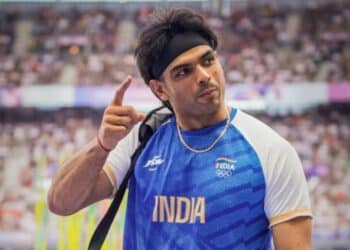Are your someone who is interested in playing soccer and are looking for ways to score more goals and become a striker, then read till end!
The word ‘forward’ is often used interchangeably with ‘striker.’ There are more specialized versions of forwards with their names, but with a similar goal-scoring role. Forwards usually start the soccer game at the center field line (the center line of the soccer field) and try to stay on the opposing team’s side for most of the game. This is because it is the striker’s role to make the most of the scoring chances his teammates create for him. Therefore, forward is one of the game’s most responsible roles. To win the game, you must perform well and make split-second decisions. This means that strikers must be confident, quick, and skilled. Some of history’s most famous soccer players are strikers who score goals and win tournaments.
How to Score More goals in Soccer?
1. Take Every shot
Any shot you miss is a missed shot for a soccer striker and is the player closest to the opponent’s goal – they should have speed, flair, technique, power, and everything to impress. Shooting must be second nature to you on the scoreboard with elements, and when an opportunity is within reach, you must seize it. Do your best always to know where your target is.
Talk to your trainer to ensure you’re continuously improving your technique as you train and practice, practice, practice. Track your on- and off-shots during matches to improve your performance. Your teammate’s position shouldn’t blind you. Sometimes it’s better to pass through to a player in a better position than himself, but forwards appear to be confident in taking on the responsibility of handing over the gate. Forwards should appear bold.
2. Mental and Emotional Control
Proper mental and emotional control is essential to scoring goals. Top strikers are confident in their ability to score goals. They have strong egos to achieve glory, win games for their teams, and score goals in a series of games and seasons. Their desire to score relentlessly seeks out opportunities to finish in and around the box, often showing coolness when presented with opportunities that allow them to end the opportunities created. They are emotionally calm under pressure and look for situations where they can prove themselves.
So, this demonstrates perseverance to wait for the right moment to shoot or to keep yourself exposed to the shooting situation even if the opportunity is missed. Some players have these things naturally, but younger players can develop these things and have some control over their emotions, sometimes losing them altogether at some point. A forward should always balance their mental and emotional control.
4. Effectiveness
The best scorer in the game’s history is not the one who creates the most scoring chances. It is preferable to have players on the team who can create scoring chances rather than players who can’t score 10 goals in a game. It would be best if you made some compromises regarding defense and game design as a striker. You don’t have to touch the ball even once during the game.
The only important thing is to hit the ball into the net when you have a chance to score. Effectiveness not only makes good scorers; it also makes excellent teams. How often have you seen a team miss many chances during a game and then lose when the other team had their only chance? When this happens, we say it’s unfair, but it isn’t because, in soccer, effectiveness wins over anything else.
5. Learn How to press intelligently
Try to understand if you are positioned correctly within a game; if you are relieving pressure from your defense by dragging away the opposition’s players, ensure you are always following the game and learning how to predict it more. Your coach may need your team to press high up the pitch to stop the opposition from easily playing out from the back. In this case, you need to understand what your coach wants from you.
6. Scoring on any part of the body
Ability to score on any part of the body. A good striker has the instinct to take advantage of shot opportunities with unusual parts of the body. Therefore, coaches must consider shooting activities that utilize multiple finishes, such as finesse. Repeat but vary the drills to allow these players to use distinct types of finishes under pressure. Hunger is an essential psychological trait for an effective scorer. Players must reach the ball before their opponents. Suppose any of the abovementioned factors can result in a restricted pressure defender from a target pressure.
In that case, the defender may need to tag or block the attacker—body positions to approach the goal based on defender and goalie positions. An important observation for forwards is the goalkeeper’s position and tendency to shoot when he shifts his weight from one foot to the other rather than landing on the opposite side of the goal. That’s it. This can be difficult for the goalie, just as it is difficult for shooting forward to parry while the goalie is off balance or shifting weight.
7. Good Finishing Skills
For many players, it is not natural to score at will. Forwards invest time and effort on the training ground to ensure that they score in almost any scenario. Half From hitting the ball in a volley to toeing in the edge of the cross to get the ball into the goal. A striker must have good finishing skills. Safe to shoot with both feet but dangerous in the air. The best strikers score goals quickly, and teammates always help you score in front of the goal.
8. Elite Expectations and Reactions
Great strikers need lightning-fast reactions to get in front of defenders and cross into the box. Their split-second decisions help them predict where the ball will land and get there first. Overthinking a defender can cause a forward to kick a defender out of the game. Strikers must react quickly to rebounds from their own or teammates’ shots and put them away confidently. A good striker can sniff out goals through responsiveness, even in a slow and tedious game.
9. Watch the Best
Watching the pros play to see the pace, skill, talent, and dedication shown is fundamental to any player or striker’s training. An excellent example to learn from is Brazilian creativity. Or you can watch some of the legends from past World Cups and learn from some of the best players and international and league teams. Watching and studying football often inspires players to learn and take their game to the next level.
10. Quick Feet
Pace ladder, cone work, mobility, agility, ball handling, and quick touch are all types of workouts you need to get faster with or without a ball. Sometimes he wins a challenge just half a second faster than his opponent. Forwards score by knocking down defenders, and the faster they are than the defenders, the more scoring chances they have. Being fast on his feet and moving the ball quickly and accurately takes a lot of practice, but it’s worth it when he’s a top scorer.
Conclusion
The forward’s goal is to stay on the other side of the field, usually in front of centre-forwards and attacking midfielders. It is a critical position that overlooks the entire field. From here, you can watch other players’ movements and look for scoring opportunities. This can come from many things. The midfielder has one clever tackle and can play the ball close to the goal. Or the opposing team may make a mistake and provide a path to the goal. Therefore, the forward specializes in speed, quickness with the ball, and his skills and ability to score goals. A good striker can accomplish a lot in a short amount of time and execute shots with precision.















